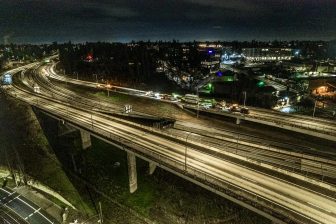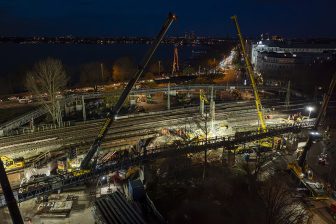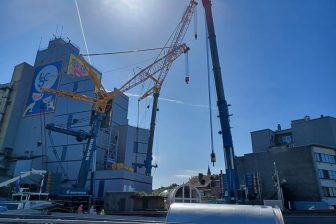German red tape is hurting heavy cargo transport

The article is a contribution to Project Cargo Journal by Bouwe van der Meer, Consultant Transport & Logistics and Logistics buyer at DMG MORI. Van der Meer gives an overview of the German legislation governing the permitting process concerning heavy cargo road transport. Over the years, the permitting process has become more of a road block and often ends up in the applicants waiting for up to six month for the permit, or in the worst case, not getting one at all. This has only created more issue and solutions seems to be few and far between with the companies left to find their own ways to navigate the complexities of the permitting process and heavy cargo transport. Calls for a solution from the authorities have so far fallen on deaf ears. (Foreword by PCJ Editor-in-chief, Adnan Bajic)
Heavy transport permit legislation in Germany is the most complex system in Europe, but it was not always like this.
From 1992 to 2008, one simple pilot car (BF2) would be enough to secure the transport through traffic conditions. For bigger transports, a police car would assist the truck as well.
Then as of 2008 the permit legislation system in Germany changed completely, a new pilot car was created to replace the police car (BF4) and later the permit legislation system was digitalised (VEMAGS). It was the end of the era; permits were no longer available for multiple routes and trucks, and suddenly this new BF4 escort car was needed – which was not available yet.
In the meantime, road infrastructure in Germany got worse and worse resulting in time consuming detours (due to road repairs and weak bridges) and very high costs. The lead-time of heavy transports doubled and even tripled as well as the costs.
In the end it got so bad that supply chains partly collapsed (wind turbines), lead-times became unpredictable and prices almost unaffordable. Until 2022, you only could get a heavy transport organised decently by doing everything in your power; contact local authorities, submit multiple different permits for a single transport, and then hope for the best. Usually with a delay of a couple of weeks a simple oversized transport could be planned. For complex transports it could take months.
Although everyone complained, problems never really reached the highest level in German politics. For that, there where multiple reasons, but surely resignation and powerlessness of local companies were the biggest. You cannot change the law on your own.
Even though costs exploded, apparently German shippers could still find a way to have customers pay for these extreme high costs. Of course, German companies produce mainly high value export machines, but other sectors like concrete and construction where having more difficulties and were losing money on deals.
In 2023 another big permit legislation change was announced – the Autobahn GmbH took over the permits for heavy and oversized transport. It did not take long before they were completely overloaded with permit request. To make things even more complex, they also implemented a new set of rules, for example the reduction of the minimum clearance height for bridges.
Since the recent changes, the legislation process in Germany has become even more complex and tight, it takes a long time before a carrier receives a permit. Six weeks to three months for a regular transport is not an exception anymore. Sometimes a permit request is rejected – with no comments and no possibility to contact the Autobahn GmbH. They are unreachable by email or phone.
Planning or calculating heavy transport through Germany has become a gambling game, no one knows the outcome and even worse – when. It basically means a carrier / shipper cannot plan or prepare anything before one receives a valid permit. It means you cannot book a ship for export, or even tell your customer when they will receive their item.
In the meantime, big stakeholders like VDMA try to influence the German government, but the bureaucracy in Germany is stronger. New laws have been implemented and contracts with the new Autobahn GmbH have been signed.
It will take some time before someone really realises what monster have been created – for some of the companies by then it will be too late.
If the legislation process would be the biggest problem in Germany, politics could bring the solution if they wanted, however still a lot of the German bridges and roads need reconstruction and or repair and are blocked for heavy transport.
Now they all swum into a giant trap and are massively stuck – Producers of wind turbines, transformers, heavy machinery, and many others.
Who will untie this Gordian Knot?
You just read one of our premium articles free of charge
Register now to keep reading premium articles.




